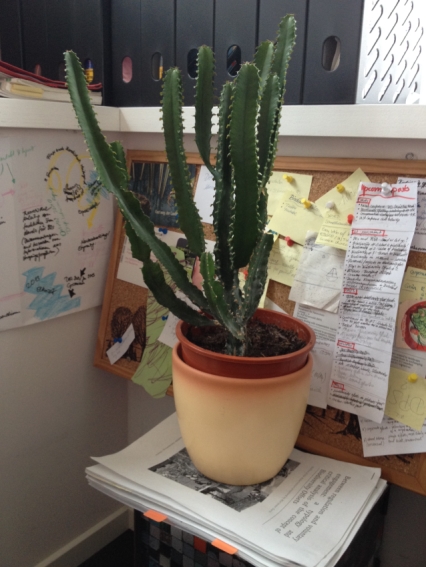 The cactus is still steadily growing, PhD not as fast, but I am optimistic…
The cactus is still steadily growing, PhD not as fast, but I am optimistic…
October update:
Cactus: 35,5 cm / PhD: 90 pages
September:
Cactus: 33 cm / PhD: 83 pages
August:
Cactus: 30 cm / PhD: 53 pages
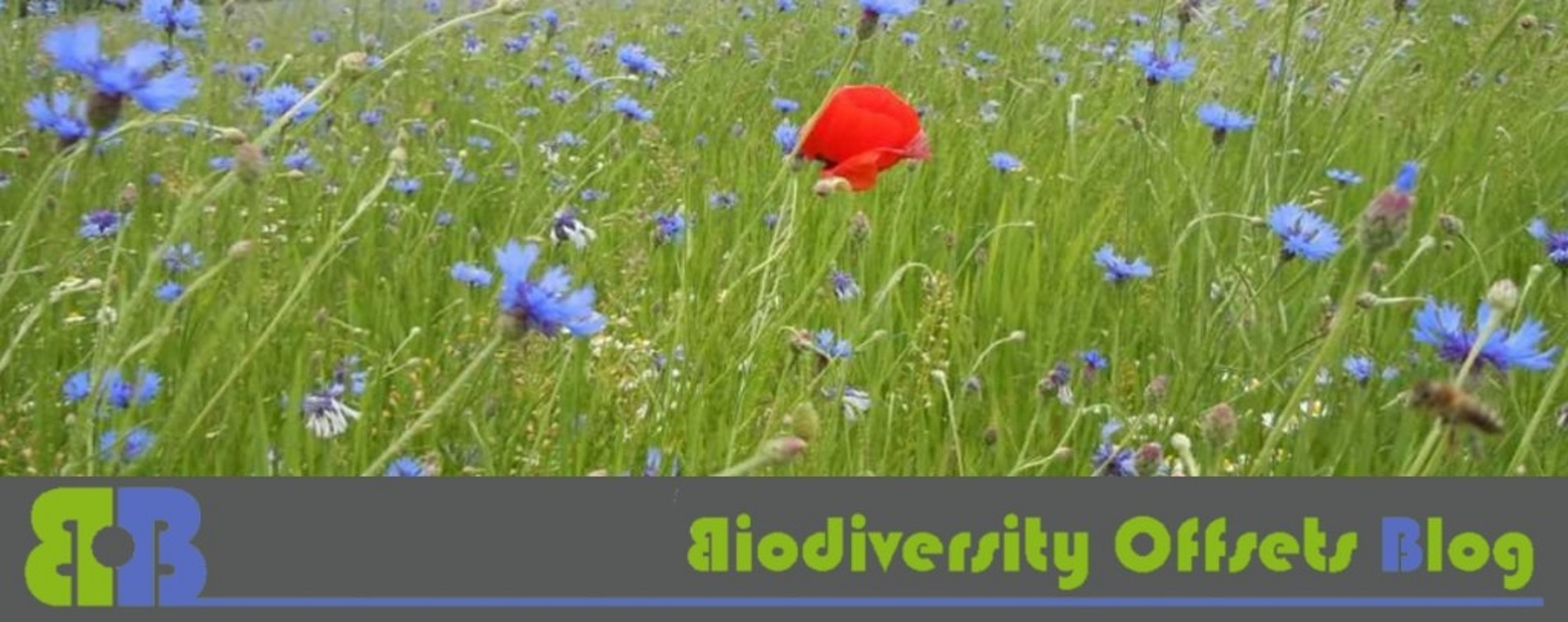
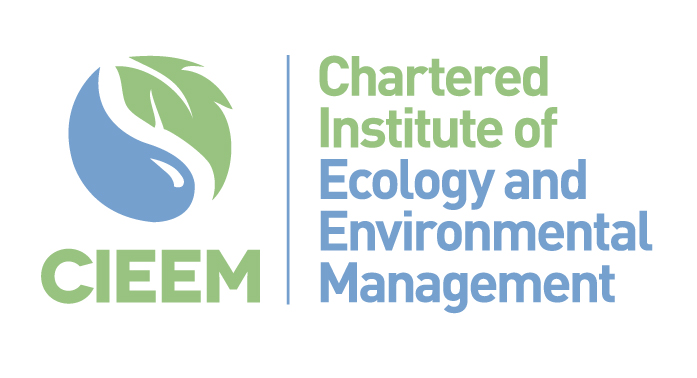 The Chartered Institute of Ecology and Environmental Management is holding a one-day introductory workshop on biodiversity offsetting on November 6, 2014, 10am — 4pm in London, managed by Dr. Julia Baker. Costs of 90/180 British Pounds apply (member/non-member).
The Chartered Institute of Ecology and Environmental Management is holding a one-day introductory workshop on biodiversity offsetting on November 6, 2014, 10am — 4pm in London, managed by Dr. Julia Baker. Costs of 90/180 British Pounds apply (member/non-member).
Unfortunately the workshop is already fully booked, but you can put your name to a reserve list by emailing to enquiries@cieem.net.
This course is for participants who wish to develop their skills in and knowledge of the biodiversity offsetting approach to development. Following sessions on the history of offsetting, the mitigation hierarchy and the system being pilot tested in England by Defra, the course will focus on the practical application of offsetting for various construction sectors with case study examples.
If you are interested in environmental compensation and biodiversity offsets, there are certainly good news: there is now a whole bunch of information from different sources, 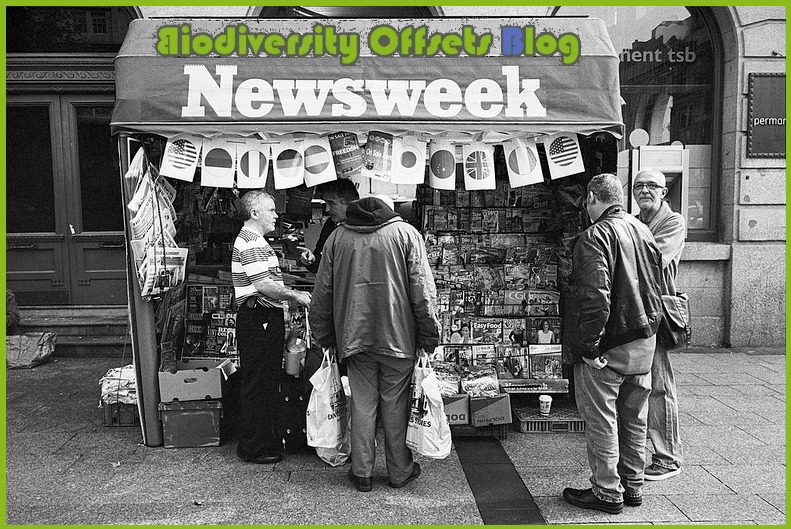 locations and viewpoints publicly available (something which wasn’t this easy only a couple of years ago). Now, as has been pointed out (see here) the Biodiversity Offsets Blog aims to compile and somewhat structure this information. But there is not only a wealth of sources already out there on the internet, but also new sources are continuously being added. I am following and collecting the news via Scoop.it and cover the most trending ones in posts on the Biodiversity Offsets Blog. Nevertheless, not all news can be covered (at least not yet) and therefore the “Biodiversity Offsets Newsweek” will list up the headlines of the past week, together with the links and PDFs of the articles or news (the latter to prevent to loose information — as we know, that unfortunately every now and then things are being removed from the internet).
locations and viewpoints publicly available (something which wasn’t this easy only a couple of years ago). Now, as has been pointed out (see here) the Biodiversity Offsets Blog aims to compile and somewhat structure this information. But there is not only a wealth of sources already out there on the internet, but also new sources are continuously being added. I am following and collecting the news via Scoop.it and cover the most trending ones in posts on the Biodiversity Offsets Blog. Nevertheless, not all news can be covered (at least not yet) and therefore the “Biodiversity Offsets Newsweek” will list up the headlines of the past week, together with the links and PDFs of the articles or news (the latter to prevent to loose information — as we know, that unfortunately every now and then things are being removed from the internet).
This week (October 6–12, 2014) the overarching theme — labelled “historic” — was an agreement between Coal of Africa, the South African Department of Environmental Affairs and SANPARKS (National Parks). In addition to the obligatory and quite euphoric media releases (which have been reproduced many times, see below), I did also find a more critical article (Deals this week…, see below). I am sure, biodiversity offsets experts around the world will have a closer look at this and see what it’s all about. The next interesting thing this week for me is a new article by Laitila, Moilanen and Pouzals on “A method for calculating minimum biodiversity offset multipliers” which will definitely add to the discussion on appropriate methodologies for biodiversity offsets. There are some more news from Australia and also some projects in the US entailing biodiversity offsets. Last, but not least, Francis Vorhies writes about his experiences on an interesting conference at the Russian Ministry of Natural Resources and Ecology in Moscow where he gave a presentation on biodiversity offsets.
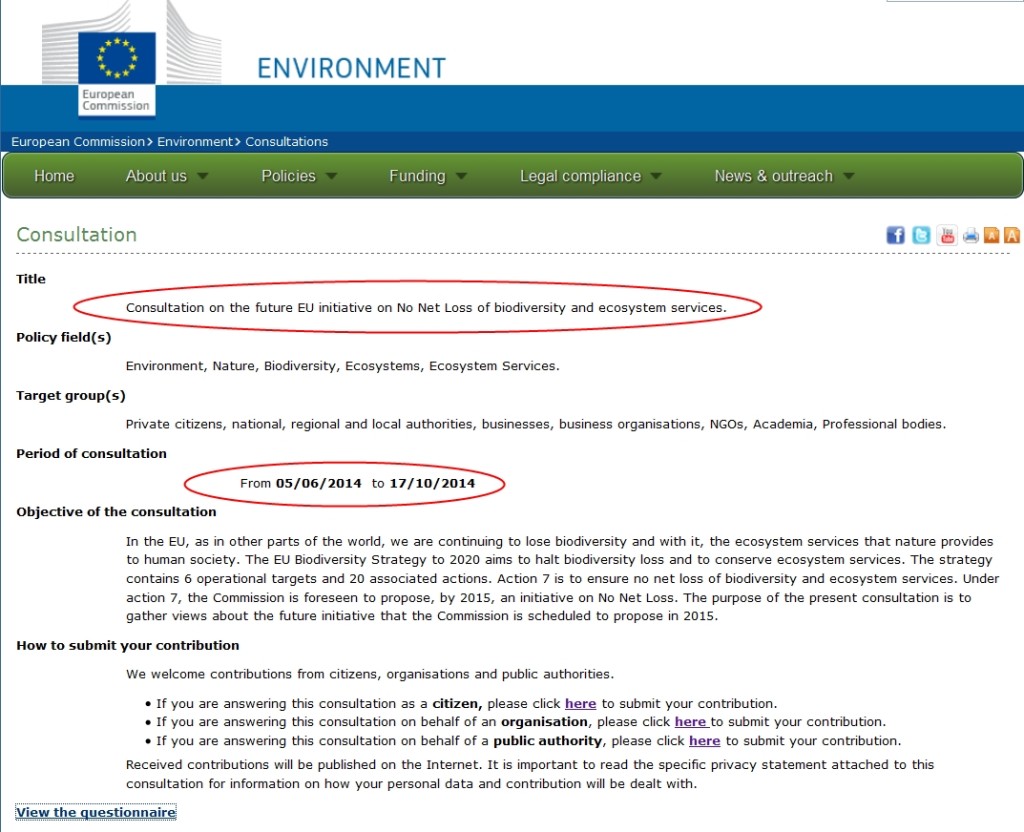 With the adoption of its 2020 Biodiversity Strategy the EU has made a commitment to halt “the loss of biodiversity and the degradation of ecosystem services in the EU by 2020, and restoring them in so far as feasible”. To reach this goal the European Commission works towards an initiative to ensure there is no net loss of ecosystems and their services (e.g. through compensation or offsetting schemes) by 2015. This action is accompanied by a public consultation on the planned No Net Loss Initiative (see my previous post for more details). The discussion on the introduction of biodiversity offsets as part of this initiative is very lively and controversial: some expect a European legal framework on biodiversity offsets would set minimum standards to protect and restore the normal landscape outside protected areas, others fear that this would foster even more development and environmental degradation.
With the adoption of its 2020 Biodiversity Strategy the EU has made a commitment to halt “the loss of biodiversity and the degradation of ecosystem services in the EU by 2020, and restoring them in so far as feasible”. To reach this goal the European Commission works towards an initiative to ensure there is no net loss of ecosystems and their services (e.g. through compensation or offsetting schemes) by 2015. This action is accompanied by a public consultation on the planned No Net Loss Initiative (see my previous post for more details). The discussion on the introduction of biodiversity offsets as part of this initiative is very lively and controversial: some expect a European legal framework on biodiversity offsets would set minimum standards to protect and restore the normal landscape outside protected areas, others fear that this would foster even more development and environmental degradation.
This post is the fourth and last in a short-run series on the Biodiversity Offset Blog encouraging you to have your say on the consultation on the EU No Net Loss Initiative until Friday, October17 (consultation closes) and to help you to make an informed decision.
The core of the proposed No Net Loss Initiative focuses on compensation for environmental impacts and biodiversity offsets. One of the most important questions to be answered through the consultation is whether the implementation of a No Net Loss Initiative will occur through mandatory legal stipulations, or voluntary compliance, i.e. a European regulation or directive vs. a communication or guidance.
If you have a clear answer or statement to this or not, strongly support a European framework on biodiversity offsetting or are completely opposed to it – don’t hesitate to have your say before the consultation closes – even if it’s a MAYBE! Your concerns, requirements and comments will help shape this initiative to the best possible outcome. Continue reading
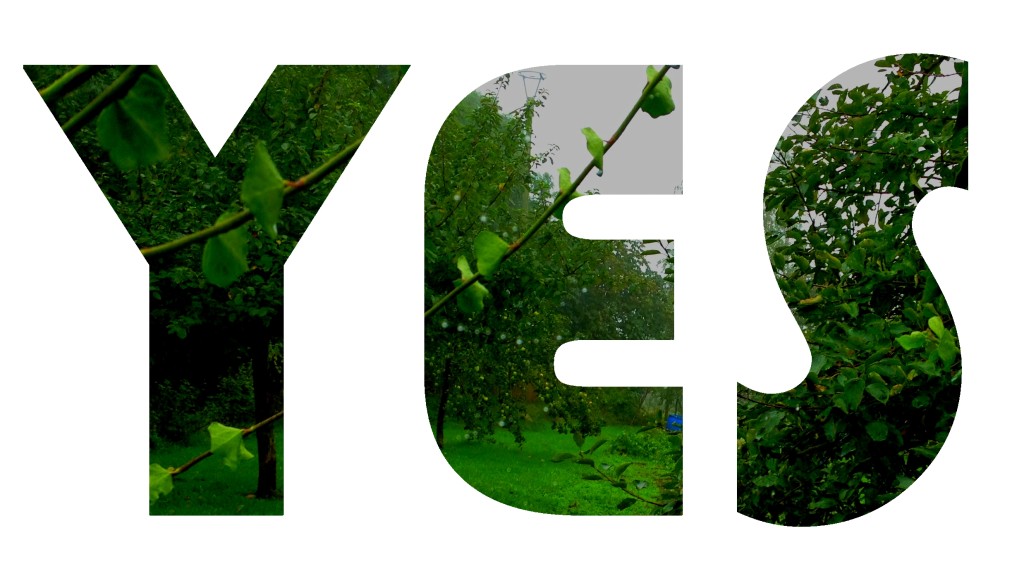 With the adoption of its 2020 Biodiversity Strategy the EU has made a commitment to halt “the loss of biodiversity and the degradation of ecosystem services in the EU by 2020, and restoring them in so far as feasible”. To reach this goal the European Commission works towards an initiative to ensure there is no net loss of ecosystems and their services (e.g. through compensation or offsetting schemes) by 2015. This action is accompanied by a public consultation on the planned No Net Loss Initiative (see my previous post for more details). The discussion on the introduction of biodiversity offsets as part of this initiative is very lively and controversial: some expect a European legal framework on biodiversity offsets would set minimum standards to protect and restore the normal landscape outside protected areas, others fear that this would foster even more development and environmental degradation.
With the adoption of its 2020 Biodiversity Strategy the EU has made a commitment to halt “the loss of biodiversity and the degradation of ecosystem services in the EU by 2020, and restoring them in so far as feasible”. To reach this goal the European Commission works towards an initiative to ensure there is no net loss of ecosystems and their services (e.g. through compensation or offsetting schemes) by 2015. This action is accompanied by a public consultation on the planned No Net Loss Initiative (see my previous post for more details). The discussion on the introduction of biodiversity offsets as part of this initiative is very lively and controversial: some expect a European legal framework on biodiversity offsets would set minimum standards to protect and restore the normal landscape outside protected areas, others fear that this would foster even more development and environmental degradation.
This post is the third in a short-run series on the Biodiversity Offset Blog encouraging you to have your say on the consultation on the EU No Net Loss Initiative until Friday, October17 (consultation closes) and to help you to make an informed decision. Continue reading
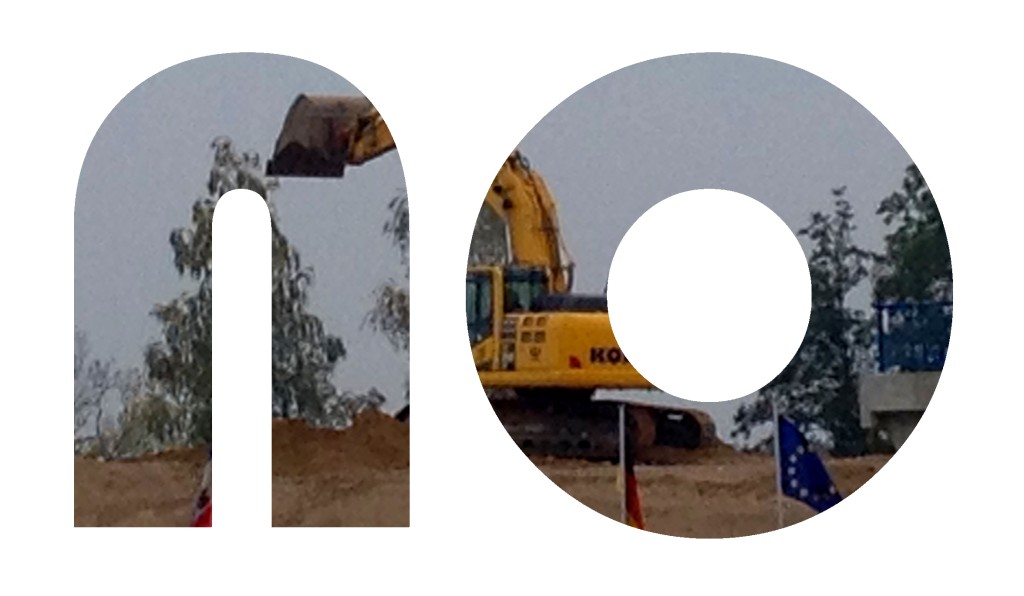 With the adoption of its 2020 Biodiversity Strategy the EU has made a commitment to halt “the loss of biodiversity and the degradation of ecosystem services in the EU by 2020, and restoring them in so far as feasible”. To reach this goal the European Commission works towards an initiative to ensure there is no net loss of ecosystems and their services (e.g. through compensation or offsetting schemes) by 2015. This action is accompanied by a public consultation on the planned No Net Loss Initiative (see my previous post for more details). The discussion on the introduction of biodiversity offsets as part of this initiative is very lively and controversial: some expect a European legal framework on biodiversity offsets would set minimum standards to protect and restore the normal landscape outside protected areas, others fear that this would foster even more development and environmental degradation.
With the adoption of its 2020 Biodiversity Strategy the EU has made a commitment to halt “the loss of biodiversity and the degradation of ecosystem services in the EU by 2020, and restoring them in so far as feasible”. To reach this goal the European Commission works towards an initiative to ensure there is no net loss of ecosystems and their services (e.g. through compensation or offsetting schemes) by 2015. This action is accompanied by a public consultation on the planned No Net Loss Initiative (see my previous post for more details). The discussion on the introduction of biodiversity offsets as part of this initiative is very lively and controversial: some expect a European legal framework on biodiversity offsets would set minimum standards to protect and restore the normal landscape outside protected areas, others fear that this would foster even more development and environmental degradation.
This post is the second in a short-run series on the Biodiversity Offset Blog encouraging you to have your say on the consultation on the EU No Net Loss Initiative until Friday, October17 (consultation closes) and to help you to make an informed decision. Continue reading
This is a guest post by Heidi Wittmer from Helmholtz Centre for Environmental Research in Germany. This comment is the expression of the author’s thoughts and experiences and such is acknowledged as a fruitful contribution to the discussion on biodiversity offsets. If you want to react or clarify your own position (underpin or disprove Heidi’s reasoning), please leave a reply below!
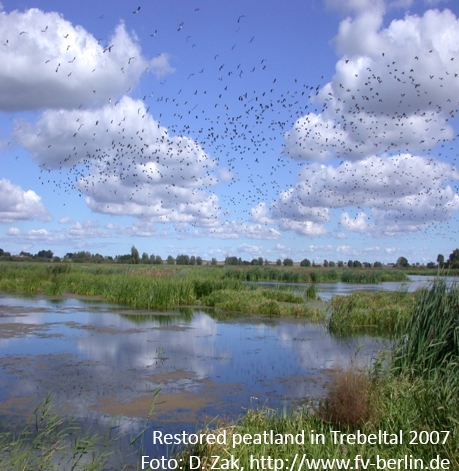 With the adoption of its 2020 Biodiversity Strategy the EU has made a commitment to halt “the loss of biodiversity and the degradation of ecosystem services in the EU by 2020, and restoring them in so far as feasible”. To reach this goal the European Commission works towards an initiative to ensure there is no net loss of ecosystems and their services (e.g. through compensation or offsetting schemes) by 2015. This action is accompanied by a public consultation on the planned No Net Loss Initiative (see my previous post for more details). The discussion on the introduction of biodiversity offsets as part of this initiative is very lively and controversial: some expect a European legal framework on biodiversity offsets would set minimum standards to protect and restore the normal landscape outside protected areas, others fear that this would foster even more develoment and environmental degradation.
With the adoption of its 2020 Biodiversity Strategy the EU has made a commitment to halt “the loss of biodiversity and the degradation of ecosystem services in the EU by 2020, and restoring them in so far as feasible”. To reach this goal the European Commission works towards an initiative to ensure there is no net loss of ecosystems and their services (e.g. through compensation or offsetting schemes) by 2015. This action is accompanied by a public consultation on the planned No Net Loss Initiative (see my previous post for more details). The discussion on the introduction of biodiversity offsets as part of this initiative is very lively and controversial: some expect a European legal framework on biodiversity offsets would set minimum standards to protect and restore the normal landscape outside protected areas, others fear that this would foster even more develoment and environmental degradation.
This post is the first in a short-run series encouraging you to have your say on the consultation on the EU No Net Loss initiative until Friday, October17 (consultation closes) and to help you make an informed decision.
If you are interested in environmental compensation and biodiversity offsets, there are certainly good news: there is now a whole bunch of information from different sources,  locations and viewpoints publicly available (something which wasn’t this easy only a couple of years ago). Now, as has been pointed out (see here) the Biodiversity Offsets Blog aims to compile and somewhat structure this information. But there is not only a wealth of sources already out there on the internet, but also new sources are continuously being added. I am following and collecting the news via Scoop.it and cover the most trending ones in posts on the Biodiversity Offsets Blog. Nevertheless, not all news can be covered (at least not yet) and therefore the “Biodiversity Offsets Newsweek” will list up the headlines of the past week, together with the links and PDFs of the articles or news (the latter to prevent to loose information — as we know, that unfortunately every now and then things are being removed from the internet).
locations and viewpoints publicly available (something which wasn’t this easy only a couple of years ago). Now, as has been pointed out (see here) the Biodiversity Offsets Blog aims to compile and somewhat structure this information. But there is not only a wealth of sources already out there on the internet, but also new sources are continuously being added. I am following and collecting the news via Scoop.it and cover the most trending ones in posts on the Biodiversity Offsets Blog. Nevertheless, not all news can be covered (at least not yet) and therefore the “Biodiversity Offsets Newsweek” will list up the headlines of the past week, together with the links and PDFs of the articles or news (the latter to prevent to loose information — as we know, that unfortunately every now and then things are being removed from the internet).
This week (September 29-October 5, 2014) two interesting events took place: a biodiversity offsetting workshop in France and the annual conference of the German Federal Association of Compensation Agencies. Most interestingly two papers on biodiversity offsets (one on mining and one on marine offsets) have been published in the October issues of the Journal of Environmental Management and Environmental Science & Policy. Beside some “smaller” biodiversity offset news from Australia and the US, the main topic this week was the ongoing biodiversity loss. The Living Planet Report by WWF gives evidence that half of the world’s wildlife has been lost over the past 40 years. This alarming facts are also taken up by George Monbiot in his Guardian column.
 This week the Business and Biodiversity Offsets Programme has announced its next BBOP webinar as part of the BBOP community of practice (all previous webinars are archived there if you want to listen to them later).
This week the Business and Biodiversity Offsets Programme has announced its next BBOP webinar as part of the BBOP community of practice (all previous webinars are archived there if you want to listen to them later).
This time the focus is on impact mitigation in the scope of a road project in Columbia. As I have mentioned in Biodiversity Offsets Newsweek, September 22–28, 2014 biodiversity offsets are advancing in Latin America (see BIODIVERSITY OFFSETTING ADVANCES IN LATIN AMERICA AMIDST CONTROVERSY, September 23, 2014, by Emilio Godoy, see also here and here and here) and Colombia is at the forefront of this. In this regard, the webinar will certainly provide interesting insights into this evolving field.
This is a guest post by Alan Key from Australian consultancy Earthtrade. This comment is the expression of the author’s thoughts and experiences and such is acknowledged as a fruitful contribution to the discussion on biodiversity offsets. If you want to react or clarify your own position (underpin or disprove Alan’s reasoning), please leave a reply below!
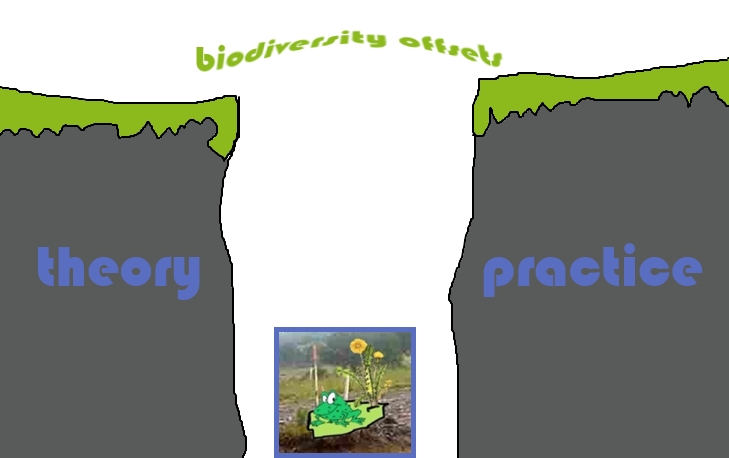 The main problems that I see (note that we have just started our 53rd project) is that there is a disjunct between theory and practice.
The main problems that I see (note that we have just started our 53rd project) is that there is a disjunct between theory and practice.
Regardless of what we want to occur, the offset has to make commercial sense or management will falter and the environmental outcomes compromised. Continue reading